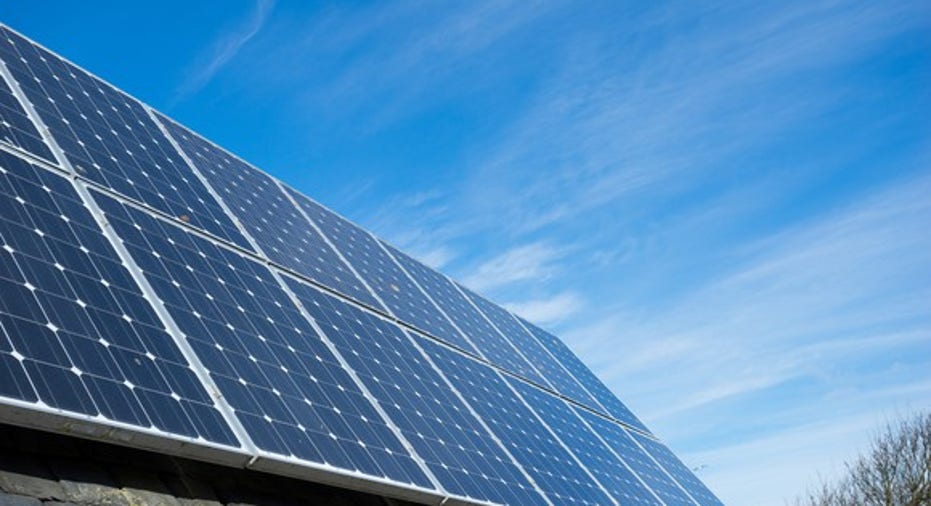Bankruptcies Give Vivint Solar and Sunrun a New Opening in Residential Solar

The residential solar industry in the U.S. is up for grabs and there could be a new opportunity for Vivint Solar (NYSE: VSLR) and Sunrun (NASDAQ: RUN) to grab market share. Sungevity and Verengo Solarrecently went bankrupt and NRG Home is exiting the home solar business, taking three big competitors out of the game.
This doesn't change the fact that local and regional installers are gaining market share, but it leaves fewer large installers with a national presence. And there's still an opportunity to use that position to profitably grow their customer base.
Image source: Getty Images.
National installers face the music
As national installers like Vivint Solar, Tesla's (NASDAQ: TSLA) SolarCity, and Sunrun built out their business, they bet that a national infrastructure with third-party financing (leases) would give them a competitive advantage. Over the past year, that strategy has fallen apart as loans and local and regional installers have gained market share. Everyone in the industry is now realizing that the trend will continue, so Sunrun, Vivint, and Tesla are pushing toward loans to stem some of the lost market share.
While national installers were fighting one another for a smaller piece of the pie, it left everyone in a weaker position. But weaker players like Sungevity and Verango Solar didn't survive, leaving just a few of the larger installers. And they're making a needed transition to focusing their efforts on profitable customers, rather than growth at all costs. And with fewer competitors, it may be easy to make that transition to profitability.
Taking a new strategy to market
Fewer competitors and the focus on cash and loan sales could also open up new markets. When Sunrun announced it was entering the Wisconsin market last week, it did so with cash and loan options and notably left out the lease. This is an acknowledgment both that new markets may see solar as an attractive option and that the lease is no longer a financing option that's worth bringing to market.
I would expect other states like Minnesota, Missouri (Kansas City), Illinois, Indiana, and Ohio to attract more installers with similar structures. Particularly in Tesla's case, the company could expand into new states just by leveraging its retail format. But I would expect Vivint and Sunrun to continue to explore their own expansions now that they're armed with loan offerings as well.
Bankruptcies could be a big opportunity
Over the past few years, there have just been too many companies fighting for the same pie in residential solar. Now that some of the weaker players are falling off, it'll leave Vivint Solar and Sunrun in a stronger position, particularly if SolarCity backs away from solar under Tesla.
The fact that local and regional installers are gaining market share is a challenge, but I think there will still be a place for national companies that are disciplined in their approach. Look at it like home construction or home improvement, where there are national as well as local companies with a place in the market.
At the very least, having less competition will make it easier for Vivint and Sunrun to operate profitably. And with immediate cash coming in from more cash and loan sales, these may soon be cash-generating businesses rather than solar finance companies, which would be a welcome change for investors.
10 stocks we like better than SunrunWhen investing geniuses David and Tom Gardner have a stock tip, it can pay to listen. After all, the newsletter they have run for over a decade, Motley Fool Stock Advisor, has tripled the market.*
David and Tom just revealed what they believe are the 10 best stocks for investors to buy right now... and Sunrun wasn't one of them! That's right -- they think these 10 stocks are even better buys.
Click here to learn about these picks!
*Stock Advisor returns as of April 3, 2017
Travis Hoium has no position in any stocks mentioned. The Motley Fool owns shares of and recommends Tesla. The Motley Fool has a disclosure policy.



















